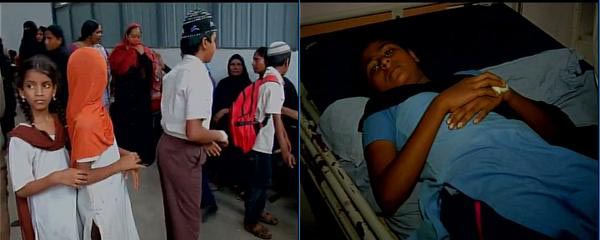
Bangalore: Around 350 children of a government-run Urdu primary school were hospitalised on Friday as they fell ill after having mid-day meal at K G Halli here, two ministers said. The children were rushed to hospital after they complained of head ache and stomach ache and started vomiting, doctors at the Dr Ambedkar Medical College Hospital said.
“Around 350 students have fallen ill and have been admitted to Ambedkar Hospital. Most of them have returned home after getting the treatment,” Health Minister U T Khader told reporters here.
“When we came here many children had gone home after getting the treatment. No one should panic and create confusion… we have to clear confusion and fear among parents and children,” he said.
“… We will discuss this with the department concerned, investigate the matter and take action…,” he said.
Transport Minister Ramlinga Reddy, who visited the hospital, said 350 children took ill but they were now “alright and will be discharged soon”.
Anxious parents rushed to the hospital, making it tough for the police to control them.
The children were brought to the hospital around 3.30 pm with complaints of vomiting sensation, Anjaneya, Manager, Ananda Social and Educational Trust which runs the hospital, said.
He said doctors were told that a lizard was found in the food served to the children.
According to him the children were brought to the hospital and about 30 had already been discharged. “Others are undergoing treatment. There is no serious case.”
The midday meal scheme of giving school pupils a free lunch is the largest such programme in the world. It has been widely lauded as one of the most successful welfare measures in India, home to a quarter of the world’s hungry, because it also boosts school enrolments and helps children to continue studies.
For millions of poor families, the lunch is the only full meal their children eat in a day. That encourages them to send them to school, and not keep them home to help with chores.
For this reason, despite being poorly managed, the scheme draws a lot of support from non-governmental organisations, rights activists and the United Nations.


